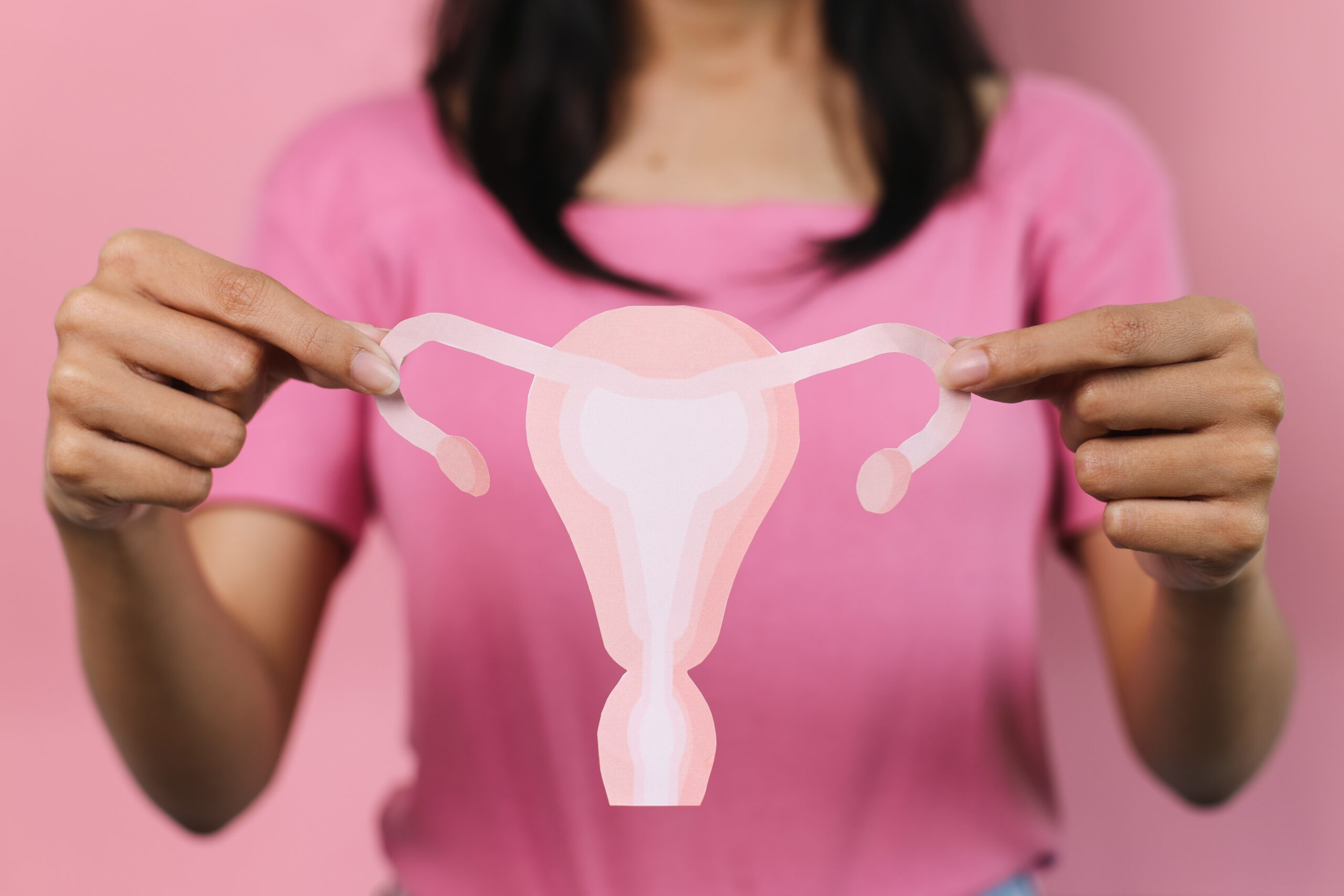What Causes Fibroids?
The exact cause of fibroids is still not fully understood, but several factors are believed to contribute to their development:

Hormonal Factors
Hormones, particularly estrogen and progesterone, play a key role in the development and growth of fibroids. These hormones stimulate the growth of the uterine lining during each menstrual cycle, which may promote the growth of fibroids. Fibroids contain more estrogen and progesterone receptors than normal uterine muscle cells, which is why they tend to grow during a woman’s reproductive years when hormone levels are highest. After menopause, when hormone levels drop, fibroids often shrink.
Genetic Factors
Genetics also play a significant role in fibroid development. If your mother or sister had fibroids, you are more likely to develop them as well. Researchers have identified specific genetic mutations that occur in fibroid cells, which may contribute to their abnormal growth. These genetic mutations are not inherited but develop in the fibroid cells themselves.
Other Risk Factors
Several other risk factors have been associated with an increased likelihood of developing fibroids:
Age: Fibroids are more common as women age, particularly during the 30s and 40s, until menopause.
Race: African American women are more likely to develop fibroids than women of other racial groups and may experience them at a younger age with more severe symptoms.
Obesity: Being overweight increases the risk of fibroids, possibly due to higher levels of estrogen in the body.
Diet: A diet high in red meat and low in green vegetables, fruit, and dairy may increase the risk of fibroids.
High Blood Pressure: Hypertension has been associated with an increased risk of fibroids.
How Fibroids Affect Women
The impact of fibroids on a woman’s life can vary depending on the size, location, and number of fibroids. Some women may experience no symptoms at all, while others may face significant challenges, including:
Heavy Menstrual Bleeding: This can lead to anemia, fatigue, and a decreased quality of life.
Pelvic Pain and Pressure: Larger fibroids can cause pain and a feeling of heaviness in the pelvic region.
Frequent Urination: Fibroids that press against the bladder can increase the frequency of urination and cause discomfort.
Constipation: Fibroids that press against the rectum can lead to constipation and bloating.
Infertility: In some cases, fibroids can interfere with fertility by blocking the fallopian tubes or disrupting the normal function of the uterus.
Given the potential impact of fibroids on a woman’s health and well-being, it is important to seek medical advice if you experience any symptoms that may be related to fibroids.
Uterine Fibroid Embolization (UFE)
One of the most effective and minimally invasive treatments for fibroids is Uterine Fibroid Embolization (UFE). UFE is a procedure performed by an interventional radiologist that targets the blood supply to the fibroids, causing them to shrink and eventually die. Here’s how UFE works:
The UFE Procedure
During the UFE procedure, a small incision is made in the groin area, and a catheter is inserted into the femoral artery. Using imaging guidance, the catheter is directed to the uterine arteries that supply blood to the fibroids. Small particles are then injected through the catheter to block the blood vessels feeding the fibroids. This blockage causes the fibroids to shrink and die while preserving the uterus and other surrounding tissues.
Advantages of UFE
UFE offers several advantages over traditional surgical methods:
Minimally Invasive: UFE is a minimally invasive procedure that does not require major surgery or general anesthesia.
Shorter Recovery Time: Most women can return to normal activities within a week, compared to a longer recovery time with surgical options like a hysterectomy.
Preserves Fertility: Unlike a hysterectomy, which removes the uterus, UFE preserves the uterus, making it a suitable option for women who wish to maintain fertility.
High Success Rate: Studies have shown that UFE is highly effective in reducing fibroid-related symptoms, including heavy menstrual bleeding, pelvic pain, and bloating.
Importance of Seeing a Medical Professional
If you suspect that you have fibroids or are experiencing symptoms such as heavy menstrual bleeding, pelvic pain, or bloating, it is crucial to see a medical professional for a proper diagnosis and treatment plan. While fibroids are not life-threatening, they can significantly affect your quality of life and may require medical intervention.
Your healthcare provider will conduct a thorough evaluation, which may include a pelvic exam, ultrasound, or MRI, to determine the size, number, and location of the fibroids. Based on the results, your doctor will discuss the best treatment options for your situation, which may include medication, non-invasive procedures, or surgery.
Schedule an Appointment
If you are struggling with symptoms that may be related to fibroids, don’t wait to seek help. Early diagnosis and treatment can help you manage symptoms and improve your quality of life. Uterine Fibroid Embolization (UFE) is a highly effective, minimally invasive treatment option that can provide relief without major surgery.
At Preferred Fibroid, we specialize in helping women navigate their treatment options for fibroids. Our experienced team of medical professionals is dedicated to providing personalized care and the latest treatment options, including UFE. Contact us today to schedule a consultation and take the first step toward a healthier, fibroid-free life.
